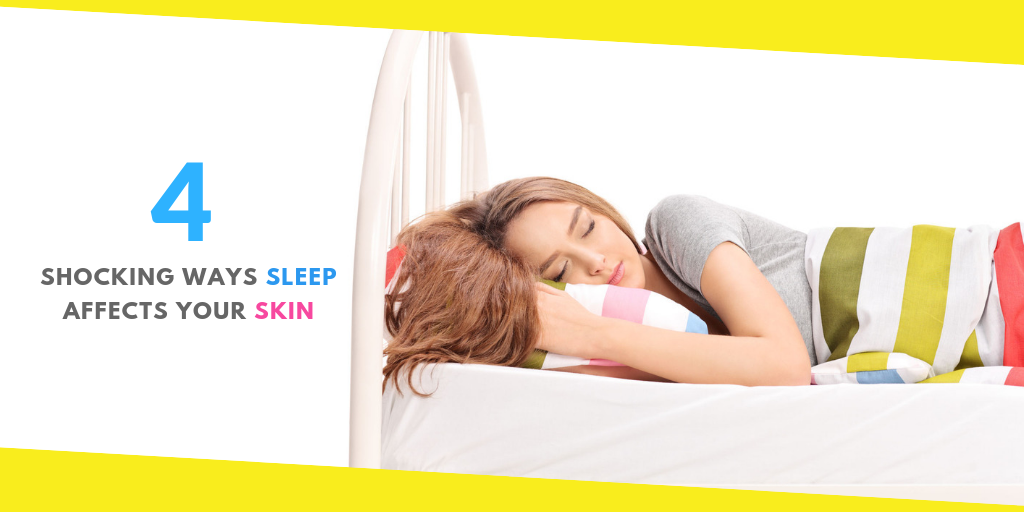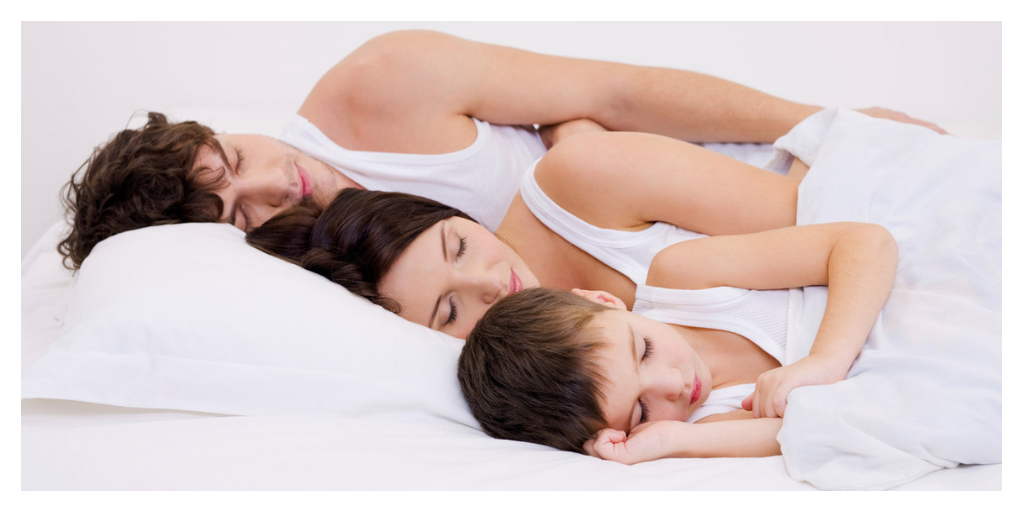4 Shocking Ways Sleep Affects Your Skin
This post was last updated on July 15th, 2023

The concept of beauty sleep has been around for eons and is often associated with vanity. However, there is more science to it than you might think. Sleep is important for the holistic development of the body and mind. The skin is the largest organ of the human body. The connection is right in front of our eyes. Here are five ways sleep affects your skin:
1. Sleep helps you retain your youthful glow
The face of someone who isn’t well rested is not a pretty sight. Dark circles, wrinkles, pale and dehydrated skin are just some tell-tale signs of sleep deprivation. Long-term disruption of sleep cycles affects the healing properties of the body and its ability to adequately hydrate the skin. During the day, your skin is battling pollution, stress, sun damage and other external factors. At night, the body begins to repair and nourish the skin. Without sufficient sleep, your skin is in a losing battle against time. Instead of spending your entire budget on creams from high end brands, with a little bit of mattress research, invest in a super king mattress for a luxurious bed time experience.
2. Sleep has anti-aging properties
A clinical trial by Esteé Lauder with the UH Medical Centre found a correlation between sleep and the effect of aging. The women who were sleep deprived during the trial showed signs of premature aging and their ability to recover from sun damage had vastly diminished. Fine lines, reduced elasticity and pigmentation began to appear among women who didn’t sleep well. Poor sleepers tend to look older than they biologically are and with sufficient scientific backing, medical professionals prescribe more sleep to women who age prematurely. Your sleeping position can also trigger the appearance of expression lines on your face. Sleeping on your back has shown to be the best sleeping positions to avoid vertical expression lines as it prevents you from squishing your face into the pillow.
3. Sleep and stress
Stress and the ability to sleep are interrelated. With increased stress, sleep quality diminishes and with increased sleep deprivation, the body experiences more stress. The body’s reaction to stress is to increase skin sensitivity and oil production. This could lead to acne breakouts and aggravate skin disorders like eczema, rosacea and psoriasis. Rashes and hives are another result of increased stress on your skin.
Recommended read: Why Sleep is Essential for Overall Health?
4. Sleep and obesity-related skin issues
One of the numerous effects of sleep deprivation is weight gain. Due to hormonal changes caused by lack of sleep, the body packs on additional pounds. Stretch marks, visible varicose veins and yeast infections are some of the skin problems that accompany obesity. Dark patches on your neck, armpits and groin area called Acanthosis nigricans also appear with increased weight gain. People with higher BMIs experience excessive sweating in the folds of their skins leading to a variety of skin infections.

Your sleep can be affected by an assortment of factors. The first step of overcoming your problem is identifying it.
1. Artificial light
The late-night texts and browsing have to stop! The light from your backlit phones and television set limits the production of melatonin that helps you fall asleep. The light also keeps your brain alert. You can make a habit of keeping all your devices out of the bedroom. It will vastly impact the quality of your sleep and help you achieve the desired number of sleeping hours.
2. External environment
Often, heat and humidity produced by the body while it sleeps can be the reason you wake up often. A cool, dark environment is conducive to uninterrupted sleep. Blackout curtains, outdoor area rugs and a functioning fan can help in creating the ideal sleeping environment.
3. Squeaky Bed
A low quality squeaky bed will often end up waking you up even with the slightest movement. Investing in the best metal bed frame available in the market does not necessarily have to be an expensive process.
4. Stress
People who cannot sleep are often plagued by stress. They are unable to let go of their emotions and it is one of the leading causes of insomnia. To combat stress, talking to friends and family members can help take the load off. Creating a playlist of good songs to relax to can create a soothing environment every night. Visiting a therapist is another great way to process emotions efficiently.
5. Unhealthy eating habits
High carb foods, caffeine, sugary treats and alcohol are some of the contributors to sleep deprivation. Those suffering from insomnia need to take conscious steps towards restricting and avoiding certain foods from their diet.
6. Lack of exercise
Your body needs to experience physical rigor through exercise. Physical activity is a key component to healthy living and helps the body function the way it is supposed to. Exercise also tires the body and helps you fall asleep faster. Physical activity can include anything from running, playing with your kids, hitting the gym, attending dance classes, going for a walk, rock climbing, hiking and so on.
7. Overworking
Success can still be attained by working the right number of hours every day. With long working hours, people tend to assume lack of sleep is a badge of honour. However, the physical and mental damage caused by sleep deprivation is extensive. It is critical for workaholics to learn to pace themselves, make time for relaxation and sleep sufficiently.
8. Sleeping disorders
An increasing number of adults and children are experiencing sleep disorders like insomnia, sleep apnea, sleepwalking, restless leg syndrome and so on. Those suffering from these disorders need to obtain professional assistance before it takes a bigger toll on their health.
Beauty sleep is neither a myth nor a cliché. It is an important part of your well-being. Not only do you look better, you feel and function better. Instead of investing in expensive cosmetic care, devoting time for yourself and sleeping well can show better results. It is natural, free and helps in your holistic development.
Recommended For You
Having a Complete Understanding of Cancer Vaccine
Most Inside
Most Inside offers high-quality recommendations and valuable updates to enhance all aspects of your life, providing premium guidance and enriching experiences.




